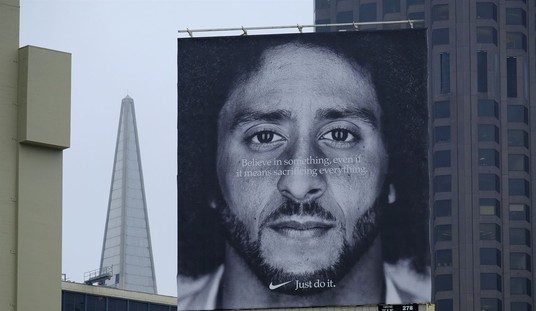Summer blockbusters won’t come back after all — at least not in the venues where they make their money. Disney all but canceled the tentpole season late yesterday, announcing that it would “indefinitely” postpone its theatrical releases due to the COVID-19 pandemic. The live-action version of Mulan won’t be rescheduled immediately, and two other long-awaited episodes of big-ticket series will get pushed back at least a year:
Disney will indefinitely postpone the premiere of “Mulan” and push back the release of new installments in the “Avatar” and “Star Wars” film franchises, the studio announced Thursday, dealing another blow to pandemic-shuttered theaters.
The company, one of the pillars of the global entertainment business, said the decisions were made in response to theater closures and production shutdowns amid the coronavirus crisis. …
“Mulan” and “Tenet” were widely seen as bellwethers for Hollywood’s attempts to begin a financial rebound. The leading studios rely on robust box-office grosses to turn a profit on big-budget projects. “Mulan” and “Tenet” each cost roughly $200 million to produce, according to widely reported estimates.
Disney said Thursday that the pandemic has forced the company to make “additional adjustments to our longer-term slate plans,” including pushing future entries in the “Avatar” and “Star Wars” sagas back one year each.
Warner Brothers made the same call earlier this week with two of its own summer releases. Christopher Nolan’s new film Tenet won’t get an American release, anyway, and the dozens of fans looking forward to The Conjuring 3 will have to wait another year:
Warner Bros. announced Monday that it will not release its much-anticipated Christopher Nolan movie “Tenet” in the United States on Aug. 12 as planned, delaying the film until at least September as the coronavirus continues ravaging much of the country.
The announcement, however, suggested that the film might open earlier overseas — a development that would be a major break with recent practice.
The move marks a hoisting of a white flag for a studio that had hoped to charge ahead after many others had long since surrendered.
Now that Disney has thrown in the towel, there just isn’t much left to release. That’s not just a function of COVID-19 — it’s also a function of consolidation in the studio industry. Disney’s now the filmmaking powerhouse in Hollywood, and Warner Brothers one of its few legitimate remaining competitors. Without their product, movie theaters and distributors don’t have a whole lot of other options for profitable content. This is one reason why the US government should have taken a much greater interest in enforcing anti-trust laws in the entertainment industry, even on so-called vertical mergers and acquisitions.
Not that it would make much difference in this case, however. The problem here isn’t an exercise of monopoly power. It’s a lack of interest from consumers, as today’s ABC/Ipsos poll showed:

Go figure that people don’t want to sit elbow-to-elbow with popcorn-munching strangers for two-plus hours to see a movie in the middle of a pandemic. Note too that consumer confidence in that option is slightly higher than with sporting events (22/78), but slightly below bowling (31/69) and airplanes (33/66). One has to wonder whether Hollywood and sports leagues have other problems than COVID-19 on their hands, too.
This prompts the question as to whether we might truly see the end of movie theaters as a major entertainment destination. Home theater technology and broadband internet has become so good that the experience now rivals that of theaters. Two tickets at the cineplex these days costs more than buying a digital copy of a new release, and far surpasses rentals, even without the cost of the food and drinks. That has its own implications for summer blockbusters, as I discussed with Christian Toto on Relevant Radio’s® Drew Mariani Show Wednesday. The $300 million budgets rely on big-time box office receipts. Without them, Marvel and DC Universes and the Star Wars platform simply won’t work.
Bad news for theaters might end up being good news for home theaters. KCEN highlights new releases that viewers can access from their recliners. Note well, though, that none of these would have otherwise gotten much notice in cineplexes crowded with summer tentpoles.








Join the conversation as a VIP Member